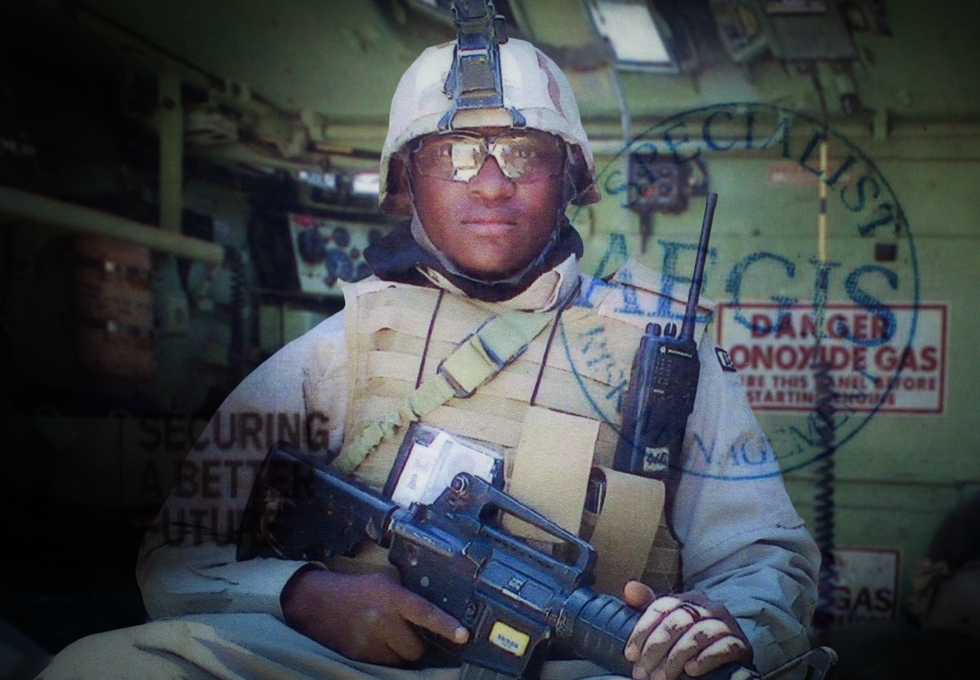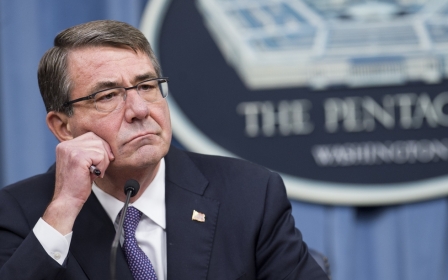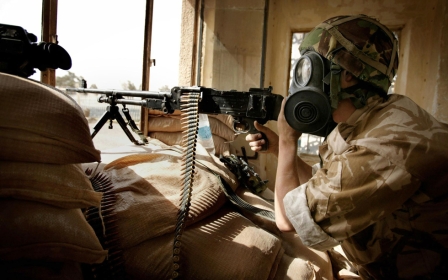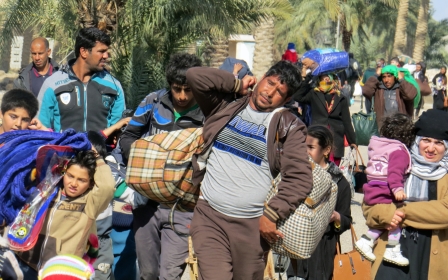UK firm hired African former child soldiers to fight in Iraq

A British defence contractor hired mercenaries from Africa for a reported $16 a day to fight in Iraq for the US, with one of the company's former directors saying no checks were made on whether those hired were former child soldiers.
James Ellery, who was a director of Aegis Defence Services between 2005 and 2015, said contractors recruited from countries such as Sierra Leone to reduce costs for the US presence in Iraq.
Speaking to the Guardian, the former brigadier in the British army said none of the estimated 2,500 men recruited from Sierra Leone were checked to see if they were former child soldiers who had been forced to fight in the country's civil war.
They were cheaper options and fulfilled contracts to defend US bases in Iraq, he said.
“You probably would have a better force if you recruited entirely from the Midlands of England,” he said.
“But it can’t be afforded. So you go from the Midlands of England to Nepalese etc, Asians, and then at some point you say I’m afraid all we can afford now is Africans.”
Aegis had contracts worth hundreds of millions of dollars to protect US bases in Iraq from 2004. It originally employed UK, US and Nepalese mercenaries, but broadened its recruitment in 2011 to include Africans.
Ellery, who said he was speaking in a personal capacity, told the Guardian that it would be “quite wrong” to ask whether people had been child soldiers, as it would penalise them for things they had often been forced into doing.
He said they were not liable for war crimes committed under the age of 18 and, "they are, once they reach 18, in fact citizens with full rights to seek employment, which is a basic human right".
"So we would have been completely in error if, having gone to Sierra Leone, we excluded those people."
The recruitment of African mercenaries and, more specifically, former child soldiers, is the subject of a new documentary by Mads Ellesoe, a Danish journalist who spent two years researching the subject.
Ellesoe told Middle East Eye that he had interviewed a "good handful" of former child soldiers who had fought in Iraq for Aegis, although there could be many more.
"There is no register so it is difficult to know exactly how many there were," he said.
"I spoke to people who were child soldiers who had done all the worst things - cut off arms, mutilated people. They told me they were living in poverty. No one wanted to take up arms again but they needed jobs, so they went to Iraq."
He disagreed with Ellery's contention that former child soldiers should be allowed to take up arms for money as adults.
"The worst thing you can do is give former child soldiers a gun again. It destroys all the efforts to rehabilitate them after being dehumanised as children. Experts told me it will simply roll back the process of trying to make them human again."
Ellesoe's documentary provided detailed evidence from former child soldiers in the employment of Aegis. Contract documents say that the soldiers from Sierra Leone were paid $16 a day.
The worst thing you can do is give former child soldiers a gun again. Experts told me it will simply roll back the process of trying to make them human again. Mads Ellesoe
One subject, Gibrilla Kuyateh, told the documentary: “Every time I hold a weapon, it keeps reminding me of about the past. It brings back many memories.”
He said rebels forced him to amputate limbs, “not always with a sharp instrument”, and trained him to fire a Kalashnikov - a weapon he struggled to carry because he was so small.
Dan Collison, the director of programming at the War Child UK charity, said: “In our experience, children who have been involved in armed groups carry the scars of that experience deep into their adult life.
"It’s true that former child soldiers should not be discriminated against when it comes to future career choices, and that they are free and independent agents.
"However, seeking out the poorest and most vulnerable to carry out this kind of work is a business model that seems to take advantage of their situation and could well spark future trauma. “
Aegis was founded in 2002 by Tim Spicer, a former Scots Guards officer who was at the centre of the 1998 “arms to Africa” scandal, in which his previous company Sandline was found to be breaching sanctions by importing 100 tonnes of weapons to Sierra Leone in support of the government.
A current serving director is Nicolas Soames, the Conservative MP and the grandson of Sir Winston Churchill.
Sierra Leone was torn apart by a a civil war which began in 1991 and last for 11 years. The UN mission spent millions on demobilising more than 75,000 fighters, including 7,000 children, after it ended.
Ellery served as chief of staff to the UN’s mission in Sierra Leone while the organisation was demobilising thousands of former child soldiers.
A request by MEE for comment from an Aegis spokesman did not gain a response.
The documentary, The Child Soldier's New Job, is due to be broadcast tonight in Denmark and will be distributed to other countries.
New MEE newsletter: Jerusalem Dispatch
Sign up to get the latest insights and analysis on Israel-Palestine, alongside Turkey Unpacked and other MEE newsletters
Middle East Eye delivers independent and unrivalled coverage and analysis of the Middle East, North Africa and beyond. To learn more about republishing this content and the associated fees, please fill out this form. More about MEE can be found here.




